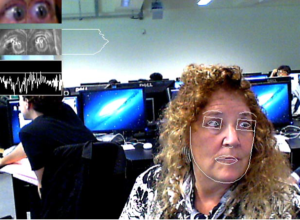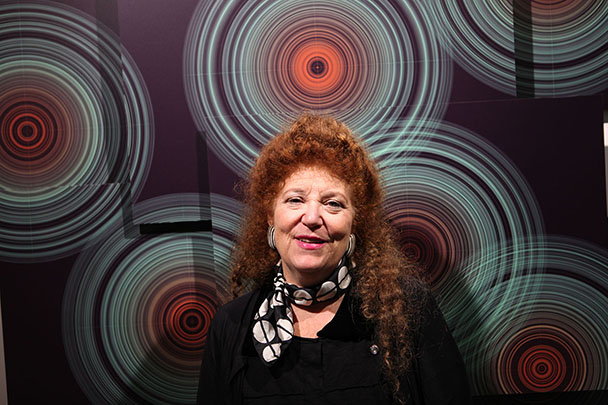Artists and musicians have been experimenting with Brain Computer Interfaces or BCIs since the 1960s. Currently a number of consumer and open source BCIs have hit the market for artistic use. At the same time the 10-year Obama and European Brain Initiatives are underway. Half the research funds in the US is going to DARPA (the Department of Defense) and its new sub-agency IARPA (Intelligence Advanced Research Projects Activity). What are they finding out, and how will this affect BCI devices and artistic practices in the future?
Date : July 13, 2015
Location: Harvestworks 596 Broadway #602 New York NY 10012
Artists and musicians have been experimenting with Brain Computer Interfaces or BCIs since the 1960s. In the past few years a number of consumer and open source BCIs have hit the market used in intriguing ways by a variety of artists. At the same time the use of BCIs has risen, the 10-year Obama and European Brain Initiatives to map every neuron in the human brain is underway. Half the research funds in the US are going to DARPA (the Department of Defense) and its new sub-agency IARPA (Intelligence Advanced Research Projects Activity). We will look at past and present artistic use of BCI, as well as current research to see what neuroscientists are finding out. How will this affect new types of BCI devices and shape artistic practices employing BCIs in the future? The implications are both thrilling, and deeply chilling.
BIOS
Ellen Pearlman is Director and Curator of the Volumetric Society of New York, and President of Art-A-Hack(TM). She is a PhD Candidate at The School of Creative Media at Hong Kong City University, and a Visiting Scholar at Parsons/New School. Her thesis focuses on consciousness, surveillance and the posthuman.
Follow these links for more details:







